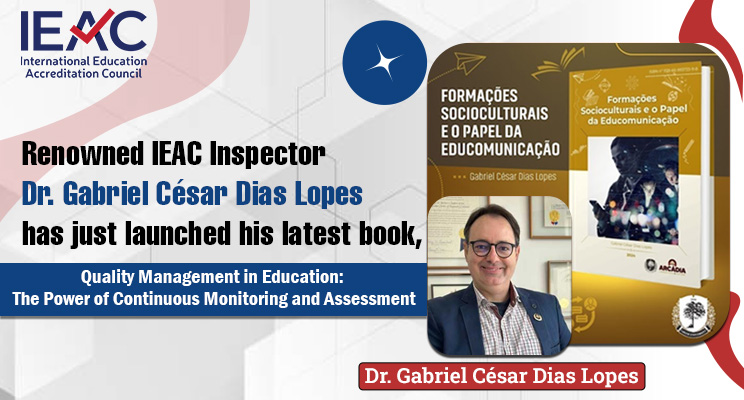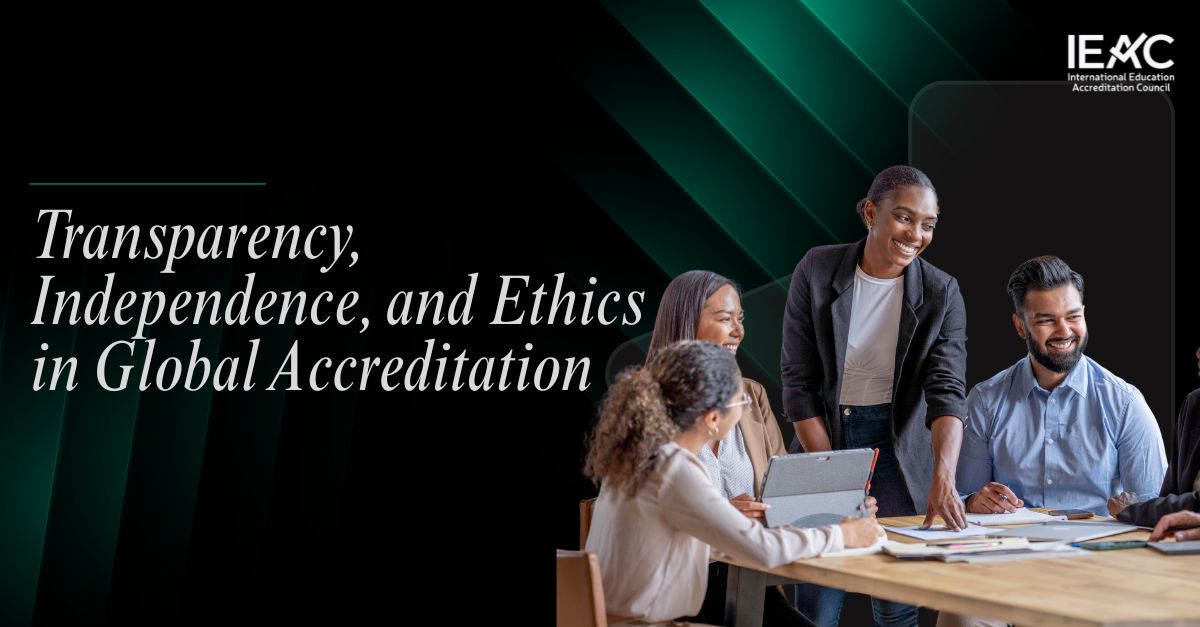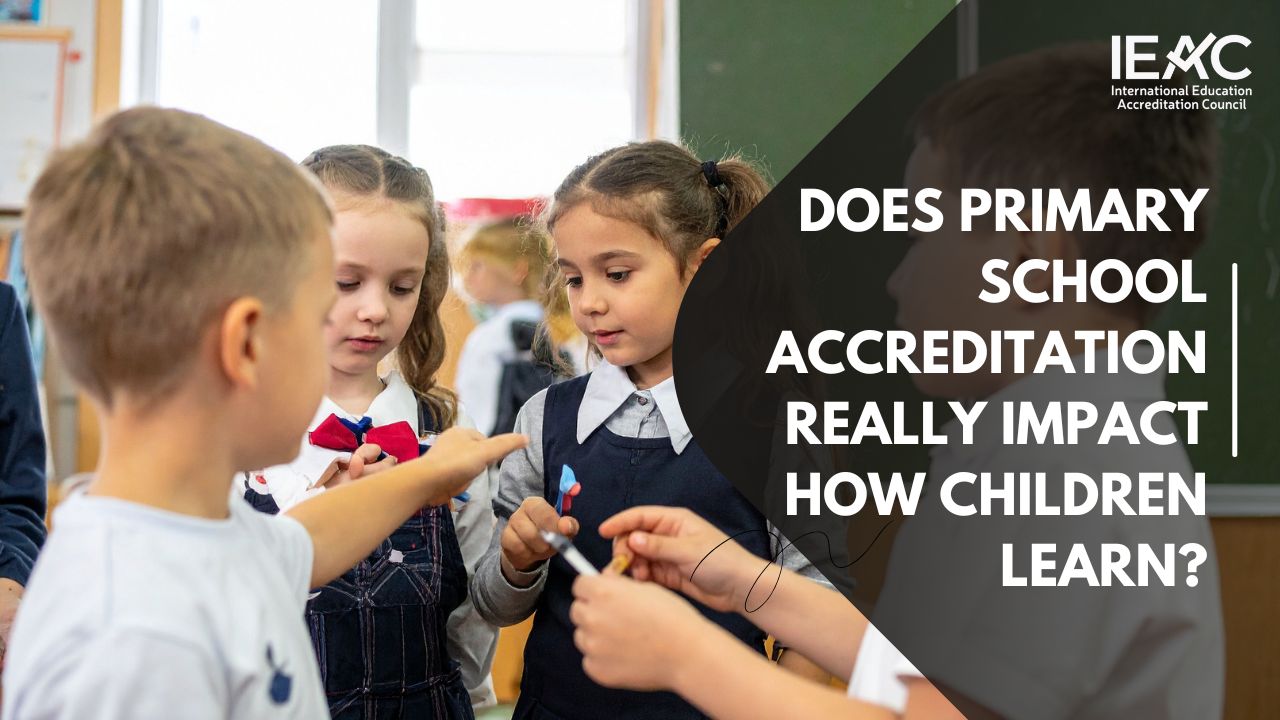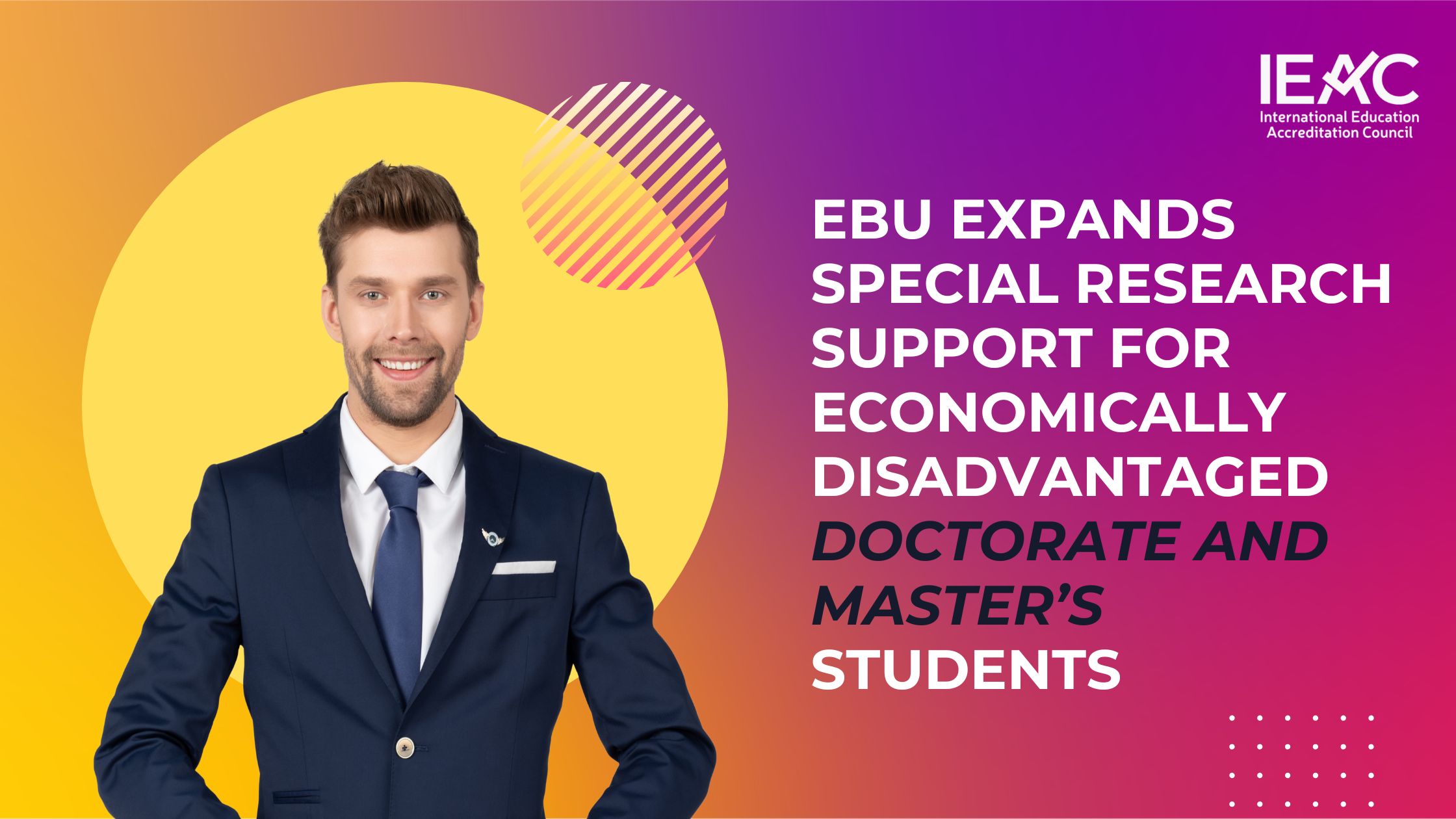- Home
- About IEAC
- Accreditation
- University Accreditation
- College Accreditation
- Online Institution Accreditation
- School Accreditation
- University Recruitment Agency Accreditation
- Programmatic Accreditation
- Teacher/ Lecturer Accreditation
- Religious Institutes Accreditation
- Affiliate Accreditation
- Research Accreditation Candidacy Accreditation
- IEAC Membership
- Institutions Accredited
- Accreditation Process
- Contact Us Webinar Apply Now
Blog
IEAC Inspector Dr Gabriel Cesar Dias Lopes Unveils New Book: Quality Management in Education: The Power of Continuous Monitoring and Assessment
Lorem ipsum dolor sit amet, consectetur adipiscing elit, sed do eiusmod tempor incididunt ut labore et dolore magna aliqua. Quis ipsum suspendisse ultrices gravida. Risus commodo viverra maecenas accumsan lacus vel facilisis.

IEAC Inspector Dr Gabriel Cesar Dias Lopes Unveils New Book: Quality Management in Education: The Power of Continuous Monitoring and Assessment
Celebrated IEAC Inspector Dr Gabriel Cesar Dias Lopes has just launched his latest book, Quality Management in Education: The Power of Continuous Monitoring and Assessment, explaining the various fresh perspectives on how educational quality can be managed and improved through ongoing evaluation with proactive communication.
Published by Arcadia Consulting and Publishing, this innovative work provides an in-depth look into quality management practices in education and how effective communication can boost the educational experience.
Let’s dive into what this groundbreaking publication has to offer.
Dr. Lopes examines how continuous monitoring not only improves academic standards but also deepens our understanding of the diverse sociocultural dynamics within classrooms. Through real-world visions and research-based strategies, Quality Management in Education guides educators, administrators, and policymakers in their quest to foster environments where students are truly heard, understood, and reinforced.
Dr. Lopes uses his knowledge to unravel the relationship between communication and education, particularly in how continuous monitoring and assessment can drive educational excellence. By examining the sociocultural formations that shape human learning, his book offers fresh insights into the critical role of quality management in creating inclusive and effective learning environments.
Sociocultural Formations in Education
Understanding the associations between culture, society, and education is more important than ever in a world that is becoming more interconnected by the day. The diversity of classrooms reflects the diversity of societies. Students' engagement, understanding, and information processing are shaped by the distinct sociocultural forms that this diversity brings to the classroom.
Dr. Lopes emphasizes the importance of continuous monitoring and assessment as the backbone of quality education. In today’s diverse classrooms, the need for consistent quality checks is paramount to ensure students receive the support and resources they need to succeed.
Dr. Lopes’ analysis goes beyond the walls of the classroom to consider the sociocultural factors that shape our educational experiences.
Educommunication is an interdisciplinary system that balances communication and education to develop tactics that promote media literacy, teamwork, and discussion. Basically, Educommunication acknowledges that education is a two-way process in which both educators and students learn from and adjust to one another, rather than just being the transmission of knowledge from one to the other.
Students develop an understanding of other people's perspectives when they learn how to communicate across cultural boundaries. This knowledge reduces biases and creates an environment where each learner is treated with respect and value. When students feel they can share their perspectives without fear of judgment, they are more likely probable to engage in the learning process. Educommunication encourages various creative forms of expression!
Where Opportunity Meets Action, Success Follows
Dr. Lopes shared with readers hands-on strategies to improve teaching quality while addressing the sociocultural dimensions of education. Dr. Lopes’ book is a compelling resource for anyone involved in education, from aspiring teachers to veteran administrators. By exploring the acquaintances between education and communication, it lets readers rethink traditional approaches, calling for a model that values continuous improvement and sociocultural awareness.
Download the e-book from the link: https://bit.ly/4hcCRGo
Happy Reading!






